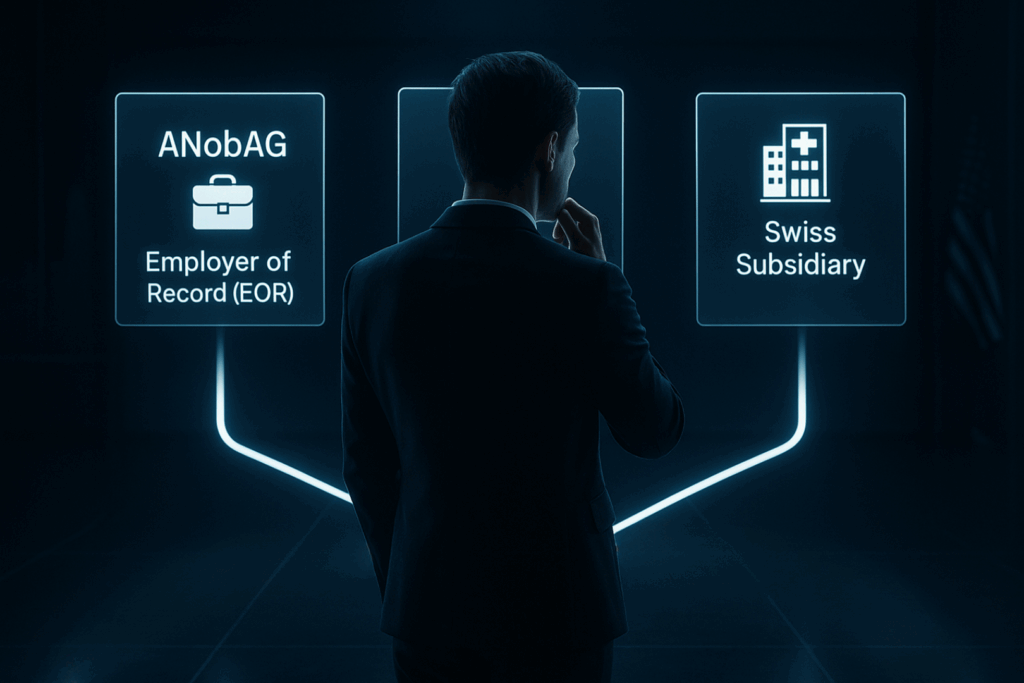Tax Deadlines in Switzerland 2025: Key Dates & Extension Policies

Switzerland’s federal system means that tax return filing deadlines vary significantly across cantons. While some offer automatic extensions, others require formal requests and may charge administrative fees. In this article, we break down the key deadlines, extension options, and potential costs in Switzerland’s largest and most popular cantons. Whether you need extra time to file or want to avoid late penalties, this guide will help you navigate the process smoothly.
Canton Zurich
In the canton of Zurich, the standard deadline for filing individual tax returns for the 2024 tax year (income earned in 2024) is March 31, 2025.
If taxpayers cannot meet this date, they may request a filing extension (Fristerstreckung) by March 31. An extension requested by that deadline is generally granted until September 30, 2025. Should more time be required, a second extension can be requested from early August before the first extension expires; this allows filing up to November 30, 2025.
Extensions are typically granted without charge in Zurich, provided the requests are made on time. Any late extension requests (after November 30) or those exceeding these dates are denied unless exceptional reasons are proven.
Canton Geneva
In Geneva, the standard deadline for individuals to submit the tax return is March 31 of the filing year (i.e. March 31, 2025 for the 2024 tax period).
If you miss this date without an extension, the tax office will send a reminder notice and charge a fee for late filing. To avoid this, Geneva allows taxpayers to request an extension of time (prolongation de délai) well in advance. Extension requests can be made between January 1 and October 30 of the filing year through various methods: online via the e-démarches portal, by phone (automated system), or by mail.
Extensions in Geneva come with an administrative fee based on the length of the prolongation: an extension of up to 3 months costs CHF 20, up to 5 months CHF 40, and more than 5 months CHF 60. After November 1, Geneva will only consider further extension requests in exceptional cases, and these must be submitted in writing with a justification (such as waiting for documents, illness, etc.). Every extension request then receives a written confirmation or refusal from the tax administration.
It’s worth noting that if you live outside Geneva but are taxable in the canton (for example, working in Geneva), you can ask Geneva’s tax office to match the deadline of your home canton by writing “Accord canton domicile” with proof of your home canton’s extension.
Canton Vaud
The canton of Vaud (Waadt) sets an earlier ordinary deadline: individual taxpayers must normally file their tax returns by March 15, 2025.
However, Vaud provides a generous automatic grace period until June 30, 2025 for residents with full tax liability in the canton. This means that, in practice, if you file by June 30, it is considered on time and you do not even need to request an extension by March – the tax authorities tolerate filings up to end of June without a formal extension request. If you still require more time beyond June, you must submit an extension request by June 30. Such a request is free of charge if made before the grace period ends. Under the cantonal guidelines, a further extension can be granted up to September 30, 2025 for individual taxpayers in Vaud.
Tax professionals handling multiple Vaud clients have a special procedure: if they file at least 75% of their clients’ returns by August, they can apply for a group extension to October 31 – but this applies to fiduciaries, not individual filers.
Canton Basel-Stadt
Basel-Stadt requires individual taxpayers to submit their 2024 tax returns by March 31, 2025, similar to most cantons.
If you cannot file by that date, you may apply for a deadline extension (Fristverlängerung) with the cantonal tax office. In Basel-Stadt, an extension request will typically push the deadline to December 31, 2025 for filing the 2024 return, giving taxpayers up to nine additional months to file. Usually this can be done online via the Basel “eSteuern” portal or in writing.
There is generally no fee for a standard extension within the filing year, and most requests are approved as a matter of course. However, any extension that goes beyond the filing year (past December 31) is only granted under strict conditions. Basel-Stadt explicitly states that extending the deadline into the next year (2026) will be approved only if there are compelling reasons and if the taxpayer makes a reasonable advance payment on their estimated taxes.
Canton Bern
In the canton of Bern, the ordinary due date is March 15, 2025 for filing the 2024 income tax return.
Bern offers a staged extension system: an initial extension can be obtained free of charge up to July 15, 2025. If taxpayers need even more time, further extensions are possible but come with fees.
An extension beyond mid-July to September 15, 2025 requires a CHF 20 fee, and extending further to November 15, 2025 incurs a CHF 40 fee. (These fees apply when extensions are requested online; paper or phone requests cost an additional CHF 20 per step.) It’s important to request each extension before the current deadline expires.
No routine extensions beyond November 15 are granted in Bern – if a taxpayer still hasn’t filed by then, they may face a late filing penalty or taxation at discretion. Bern’s tax authority has implemented this fee structure to encourage timely filing; however, the first extension through July 15 remains free and easy to obtain via the online portal or by contacting the cantonal tax office.
Canton Zug
The canton of Zug sets a later filing date than many other regions. Individual (natural person) tax returns for 2024 are due by April 30, 2025 in Zug.
If this standard deadline cannot be met, taxpayers can request an extension (Fristverlängerung) from the cantonal tax authorities. Zug is relatively lenient with extensions: upon request, the filing deadline can be extended up to December 31, 2025 for the 2024 tax return. This gives Zug residents a potential extra eight months beyond April to complete and submit their tax declaration. It’s important to note that the extension is not automatic – one must file an extension request (“mit Gesuch”) to benefit from the prolonged deadline.
There is no fee mentioned for a normal extension in Zug; the process is typically free if done on time. Generally, the tax office will grant the extension through year-end as long as the request is reasonable. As always, the request should be submitted before the original April 30 deadline (usually, Zug provides online and paper forms for this purpose). If an individual still needs more time beyond December 31 (which is uncommon), they would need to contact the tax office directly and provide justification, but such cases are exceptional.
Canton Ticino
In Ticino (the Italian-speaking canton), the individual tax return deadline is a bit later in spring. Taxpayers must submit the 2024 income tax declaration by April 30, 2025.
An extension (proroga) can be requested if one cannot file by that date. The Ticino tax authorities generally allow extensions up to December 31, 2025 on request. This means you can ask to postpone the filing until the end of 2025. Traditionally, Ticino sent a paper form for extension requests, but starting with recent tax years, this has moved online – now taxpayers are expected to request any extension via the designated online portal (by scanning a QR code on the tax form or visiting the website).
There is no fee for a standard extension in Ticino; taxpayers simply need to apply before the April 30 deadline. Once an extension is granted, the new deadline is usually confirmed as the end of the year. No further extensions into the next year are normally permitted, as the final date to file the 2024 return would be Dec 31, 2025. If someone still fails to file by then, they risk a fine or a taxation decision made by the authorities (“taxation d’office”).
Canton Lucerne
In Canton Lucerne, individual income tax returns are generally due by March 31, 2025, as is common in many cantons.
If taxpayers cannot submit their return by this date, they can request an extension until August 31, 2025 without any fee. Extensions up to the end of August can be filed easily online via the canton’s e-extension portal. In practice, Lucerne grants these routine extensions automatically upon request; no justification or payment is required for an extension through August.
For any additional time beyond August 31, the taxpayer must send a justified request to the tax office. The Lucerne tax authorities will individually assess such requests for a later deadline.
Canton Fribourg
Canton Fribourg (Fribourg/Freiburg) requires individual tax returns to be filed by March 31, 2025 under normal circumstances.
If this deadline cannot be met, Fribourg allows taxpayers to obtain up to four extensions (each extension typically for a couple of months) with a final cutoff in mid-December. No extension is granted beyond December 15, 2025, which is the absolute last date to file.
Each extension in Fribourg comes with an administrative fee of CHF 20. To get an extension in Fribourg, taxpayers have two options.
Option 1: Pay the CHF 20 fee using the QR-payment slip attached to the tax return form – this payment alone serves as the extension request, with no further explanation needed.
Option 2: Submit a written request with a valid reason for needing more time; the cantonal tax office will review the justification, and a CHF 20 fee will be billed for processing.
In total, up to four extensions (each incurring CHF 20) can be granted sequentially, typically extending the deadline into winter. However, no matter what, December 15, 2025 is the final deadline in Fribourg – no filings are accepted after this date.
Canton Schaffhausen
In Canton Schaffhausen, the regular deadline for filing individual tax returns is March 31, 2025.
Taxpayers who need more time can request an extension of the filing deadline up to November 30, 2025. The canton provides an online system (eFristerstreckung) for convenient filing of extension requests, and there is no charge for obtaining an extension in Schaffhausen – it’s a free service as long as the request is made on time.
However, extensions beyond November 30 are generally not granted, except in very exceptional cases. In rare situations (e.g. severe hardship or delays outside the taxpayer’s control), the tax office may consider an additional extension upon special request, but this is an exception rather than the rule.
Canton Schwyz
Canton Schwyz sets an ordinary tax filing deadline of March 31, 2025 for individuals, but it offers one of the longest potential extensions.
Taxpayers can apply to extend the deadline all the way to December 31, 2025 for filing their 2024 income tax return. There is no fee charged for an extension request in Schwyz – the service is free. However, note that the extension request must typically be submitted by July 31, 2025 if you intend to take advantage of the full extension until year-end. This means you should file your extension request no later than the end of July; otherwise, the canton might not grant the prolongation through December.
In practice, Schwyz often grants an initial extension (for example, many taxpayers are first given an extension to September 30). If more time is still required, a further request can extend the deadline to 31 December 2025.
Canton Solothurn
In Canton Solothurn, the standard filing due date for individual tax returns is March 31, 2025.
If you cannot file by that date, you may request an extension until July 31, 2025 as an initial prolongation. This first extension is free of charge – taxpayers can simply submit a deadline extension form (included with the tax return) or apply online via the cantonal tax office website to get the due date moved to end of July. The canton readily grants this July 31 extension as long as the request is made on time (by March 31).
If the tax return still cannot be completed by July, Solothurn allows a further extension to November 30, 2025, but with additional requirements. To obtain an extension till the end of November, you must send a written request to the Cantonal Tax Administration explaining the reasons for the delay. A processing fee of CHF 30 is charged for this extended deadline.
Canton St. Gallen
Canton St. Gallen requires individual tax returns to be filed by March 31, 2025 as the regular deadline.
Unlike many other cantons, St. Gallen does not have a fixed final extension date that applies universally to all taxpayers. Instead, extensions are handled on a case-by-case basis by the tax authorities. In practice, this means taxpayers may request an extension for a specific date and the tax office will decide whether to grant it and how long of an extension to allow. There is no fee for requesting an extension – the process is free in St. Gallen.
Typically, an initial extension in St. Gallen might prolong the deadline by a few months (for example, to September or October). If more time is needed, one can request further extensions, which the canton will evaluate individually. It’s not uncommon for St. Gallen to grant extensions into the late fall or even up to December of the filing year, depending on the situation, but each step requires a formal request and approval.
Canton Valais
In Canton Valais (Wallis), the normal deadline for submitting the annual tax return is March 31, 2025.
If you aren’t able to file by then, the Valais tax administration has a system of staged deadlines, similar to the one offered by the canton of Bern. All taxpayers are effectively allowed a first extension until July 31, 2025, but this is obtained by paying a CHF 20 fee. There is no need to write a formal request for this first extension – simply paying the CHF 20 “délai” fee (using the payment slip enclosed with your tax declaration) will automatically extend your deadline from March 31 to July 31.
If the return still cannot be completed by the end of July, additional extensions are possible, but only through authorized fiduciaries (tax advisors/accountants). Tax professionals can apply for up to two more extensions on behalf of their clients in Valais. These further extensions typically extend the deadline first to October 31, 2025, and finally (with a second request) to December 31, 2025 at the latest. The Valais tax authority will not accept any individual tax returns after December 31, 2025, as that is the ultimate final deadline.
It’s important to note that only licensed fiduciaries can obtain the October or December extensions – an individual taxpayer acting on their own cannot directly get an extension beyond July 31 through the normal system. Therefore, if you anticipate needing time beyond July, you may consider working with a tax advisor who can handle the extension requests for you. Keep in mind that filing your tax return late in Valais without having paid for an extension or obtained one through a fiduciary can lead to hefty fines for late submission. To avoid penalties, make use of the extension options: pay the CHF 20 for extra time until July, and if necessary, ensure your fiduciary requests the further delays up to the year-end deadline.


